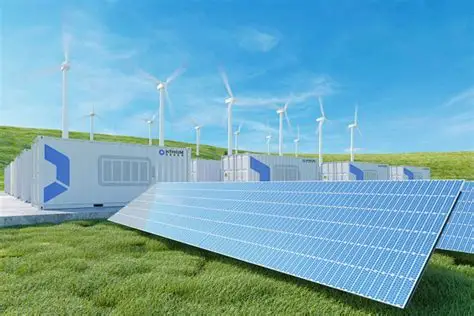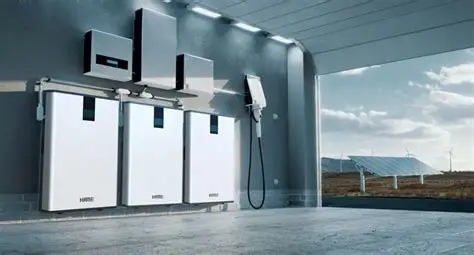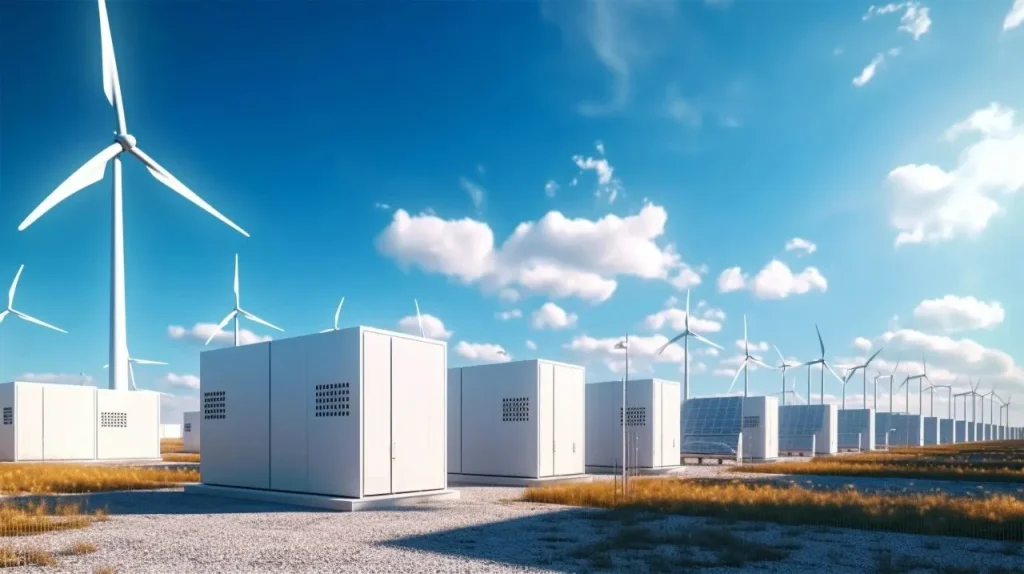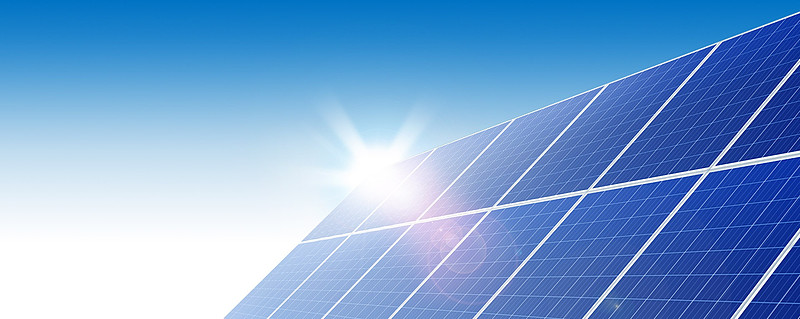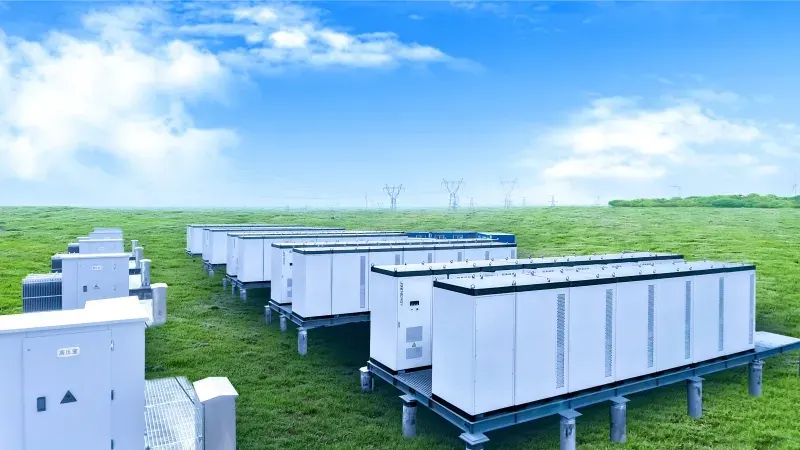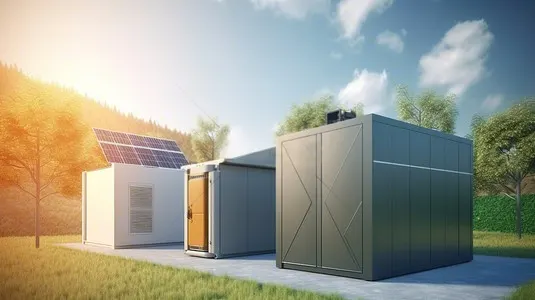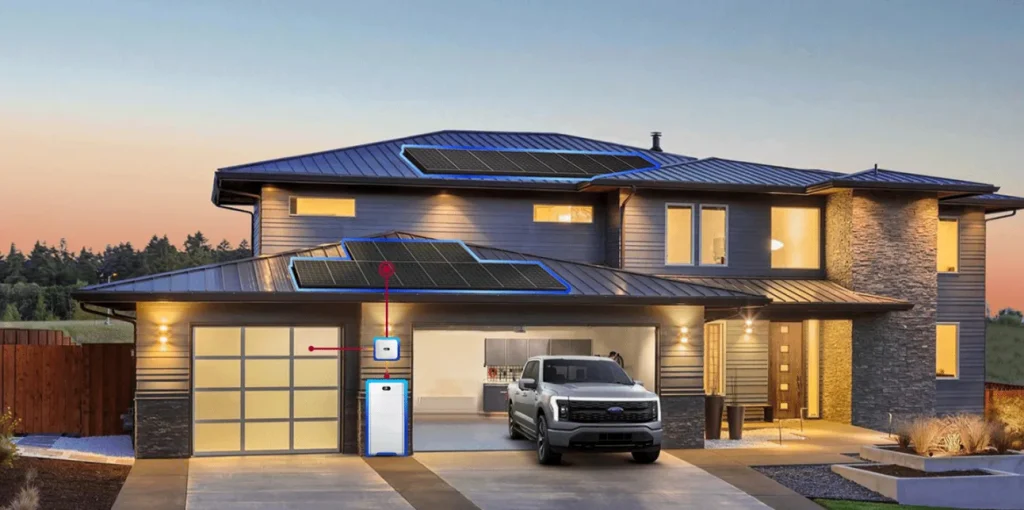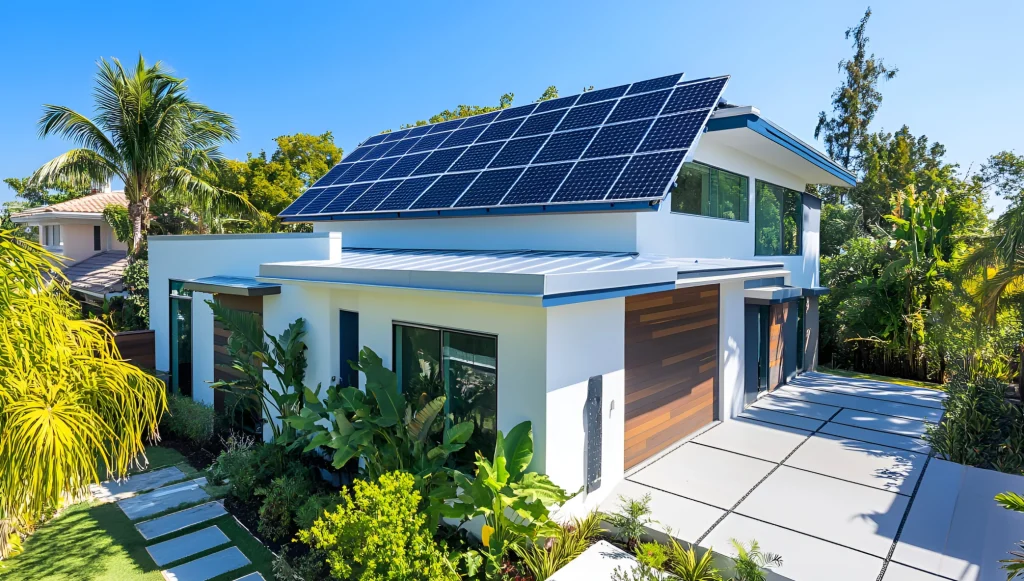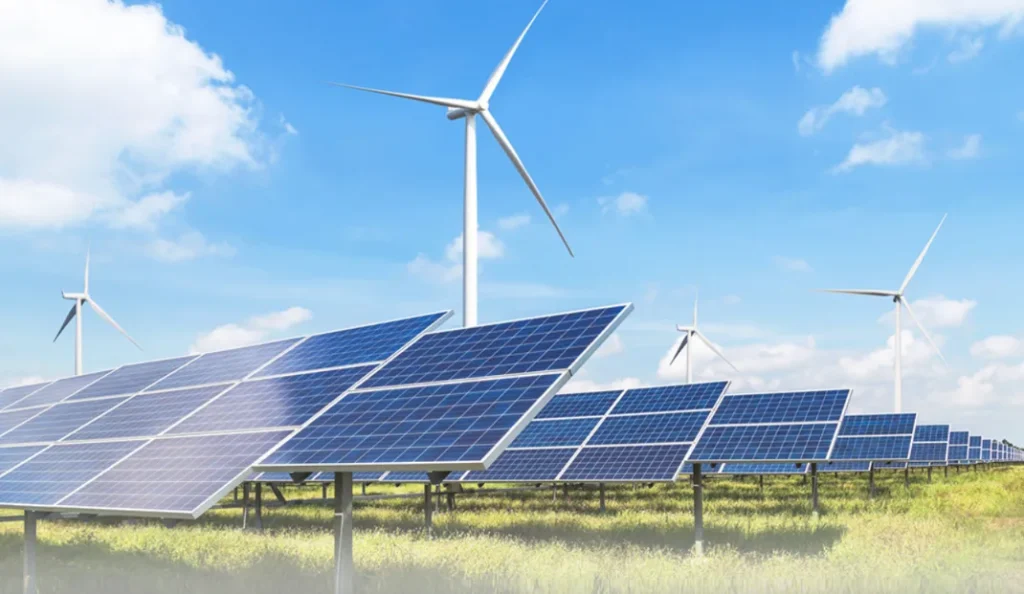1. Harnessing the Sun's Power: The Magic of Home Energy Storage Systems
What if you could capture the sun's power and store it for those moments when you need it most? Picture storing energy during the sunny hours and then using it at night or when electricity prices skyrocket. This is precisely what a home energy storage system does. It's like having a personal power bank for your home.
Many homes today are equipped with solar panels to capture sunlight and convert it into electricity. But what occurs when the sun sets or clouds obscure the sky? Without energy storage, that precious energy is either lost or you have to purchase power from the grid. A home energy storage system changes this scenario. It saves the excess energy that you don't consume immediately, allowing you to draw on it later.
Why is this significant? Electricity prices typically fluctuate throughout the day. With energy storage, you can avoid purchasing expensive power during peak hours. Additionally, you can keep your home running during power outages when the grid fails.
This system can work in tandem with solar panels or even independently with just the grid. It stores energy when it's cheap or abundant and releases it when you need it. The result? Lower electricity bills, greater control over your energy usage, and less energy waste.
Are you eager to learn how this simple concept can save you money and integrate seamlessly into your daily life? Keep reading. You might find that a home energy storage system is the key to a smarter, more cost - effective, and eco - friendly home.
2. The Inner Workings of a Home Energy Storage System
How does a home energy storage system operate? Think of it as a simple yet ingenious method to hold onto power when it's plentiful and utilize it when it's scarce. During the day, your solar panels absorb sunlight and transform it into electricity. However, your home doesn't always require all that power right away. What happens to the surplus? Without energy storage, it often flows back to the grid or simply goes to waste.
A home energy storage system steps in at this point. It captures the extra electricity and stores it in a battery. This stored energy patiently waits until you need it - like at night, on cloudy days, or when electricity prices spike. Instead of buying power from the grid at high rates, you tap into your own stored supply.
What are the main components of this system? Primarily three parts: batteries, an inverter, and a management system. The batteries are the core, where energy is stored. Most homes opt for lithium - ion batteries due to their efficiency, long - lifespan, and compact size. The inverter also plays a crucial role. It converts the stored direct current (DC) power into alternating current (AC), the type used in your home. The management system acts as the brain. It determines when to store energy and when to release it, optimizing your usage and saving you money.
Why is this important? Because electricity costs are not constant. They rise and fall throughout the day. Utilities usually charge more during peak hours when demand is high. Without energy storage, you're forced to pay those higher rates. With a battery system, you can store energy when it's cheap or free - such as mid - day solar power or off - peak grid electricity - and use it when prices increase.
This system also prevents clean energy from being wasted. Instead of sending surplus solar power back to the grid for minimal or no credit, you keep it for your own use. This means a greater return on your solar investment. Plus, if the grid goes down, your stored energy can keep your lights on and your fridge running. No need for noisy generators.
In short, a home energy storage system gives you control. It evens out the fluctuations in energy usage and prices. It saves money by shifting the timing of your electricity purchases and usage. It enhances the value of your solar panels. And it offers peace of mind during power outages.
Isn't it time to consider having your own home power bank? This simple addition could save you money and make your energy usage smarter and more environmentally friendly.
3. Reducing Electricity Bills Through Time - of - Use (TOU) Arbitrage
What if you could pay less for electricity simply by changing the timing of your usage? That's the power of time - of - use (TOU) pricing. Many electric companies charge different rates depending on the time of day. During peak hours - typically from late afternoon to early evening - electricity costs more. At night or mid - day, when demand is low, prices drop. A home energy storage system enables you to take advantage of this pricing strategy.
Here's how it works. During the day, your solar panels or the grid supply power. Instead of using it all immediately, you store the excess energy in your battery. When the sun sets and prices rise, you switch to the stored power. You avoid purchasing expensive electricity during peak times. It's a simple and smart way to save money.
But what if you don't have solar panels? You can still use the grid's cheaper off - peak electricity to charge your battery. Then, when utility rates spike, you draw from your battery. This is known as TOU arbitrage - buying low and using high. It's similar to shopping for groceries during a sale.
Let's look at a real - world example. Suppose your utility charges 10 cents per kWh at night but 30 cents during peak hours. If you use 10 kWh during peak time, that costs $3.00. But if you stored 10 kWh from the night before, you only pay $1.00 for the same amount of energy. That's a $2.00 saving every day. Over a month, these savings add up significantly.
Some systems even automate this process. They learn your local utility's rate schedule and switch power sources without any effort on your part. Your battery charges when electricity is cheap and discharges when it's expensive. You get the best rates without the hassle.
What about selling power back to the grid? Some regions offer net metering, where you receive credits for the extra solar power you send out. However, many utilities have reduced these credits. In such cases, storing your solar energy for your own use makes more sense. You avoid selling low and buying high. Your battery keeps your free solar power for you.
By using TOU arbitrage, a home energy storage system turns the fluctuations in electricity pricing to your advantage. It's a straightforward way to save money and make your energy work more efficiently for you. Why pay more when you don't have to? With energy storage, you have the power to choose when and how much to pay.
So, are you ready to beat the peak? A home energy storage system could be your secret weapon against rising electricity bills. It's not just about saving energy - it's about saving money.
4. Maximizing Solar Self - Consumption and Minimizing Grid Reliance
Have you ever wondered what happens to the extra solar power your panels generate during the day? Without a home energy storage system, much of that energy often flows back to the grid or remains unused. Isn't it a waste to let free, clean energy go to waste? A home energy storage system revolutionizes this situation by capturing that surplus power and saving it for when you need it most.
Think of it this way: your solar panels work diligently all day, absorbing sunlight and converting it into electricity. But your family might not use all that energy while the sun is shining. Maybe everyone is out, or your appliances are turned off. Without energy storage, the extra power either returns to the grid for a small credit or is lost entirely. With a battery system, you keep that energy at home, ready to use when the sun sets or clouds roll in.
Why is this important? Using your own solar power directly means you purchase less from the grid. Grid power is often more expensive and may be generated from fossil fuels. By increasing your solar self - consumption, you reduce your electricity bills and shrink your carbon footprint simultaneously.
What if your utility doesn't offer generous net metering or feed - in tariffs? This is where energy storage truly shines. Instead of selling your excess solar energy back at a low rate, you store it for your own use. You avoid the pitfall of selling low and buying high. It's your energy, and it's your savings.
Let's break down the benefits:
- Increased value from your solar panels: You get to utilize more of the power you generate, maximizing the return on your investment in your solar system.
- Reduced grid dependence: When you rely less on the utility, you're less exposed to rising electricity prices and power outages.
- Energy on your terms: Your stored solar energy can power your home at night, during cloudy days, or whenever you desire - not just when the sun is out.
Imagine the peace of mind that comes with knowing your home runs mostly on your own clean energy. No unexpected bills. No sudden price hikes. Just a steady, predictable power supply from your rooftop to your battery and then to your home.
Isn't that the kind of control every homeowner desires? A home energy storage system gives you that control. It transforms solar power from a daytime - only benefit into a full - day advantage. It makes your home smarter, greener, and more cost - effective.
So, ask yourself: Why let your solar energy go to waste? Why pay more for power when you can store your own? With a home energy storage system, you make the most of every ray of sunshine. Your wallet and the planet will thank you.
This is how you maximize solar self - consumption and minimize your reliance on the grid. It's simple. It's smart. It saves money.
5. Avoiding Demand Charges and Peak Demand Fees
Have you ever examined your electricity bill and noticed a separate charge for peak demand? These are demand charges, fees based on the highest amount of power you consume during a short period, usually 15 minutes to an hour. They can account for a significant portion of your bill, especially if you operate many appliances simultaneously or have high - power requirements during peak hours.
How can a home energy storage system help? Simply put, it levels out those peaks. Instead of drawing a large surge of power from the grid all at once, your battery steps in. It discharges stored energy during those high - demand moments. This reduces the peak load your utility observes and lowers your demand charges.
Think of it as spreading out your energy usage more evenly. When you know you'll be using a lot of power - perhaps running the air conditioner, oven, and washing machine simultaneously - the battery kicks in. It supplies some of that energy so that your grid draw remains below the threshold that triggers high demand fees.
Who benefits the most? Homes or businesses with demand - based pricing plans. These are common in commercial settings but are increasingly being seen in residential tariffs. If your utility charges you not only for total energy consumption but also for peak power, a battery system can save you hundreds or even thousands of dollars annually.
In short, avoiding demand charges means paying less for the same amount of electricity. Your home energy storage system acts as a buffer, reducing costly spikes and making your bills more predictable. It's another intelligent way to turn energy storage into real savings.
6. Backup Power: Ensuring Continuity During Outages
A home energy storage system does more than just save you money on your daily electricity bills. It provides backup power when the grid fails. Imagine a storm knocking out the electricity for hours or even days. Without energy storage, you're left in the dark, potentially losing food in the fridge, missing work, or being unable to charge your devices. With a battery system, your home can keep running. Lights stay on. Refrigerators continue to operate. Medical devices remain powered. You gain peace of mind.
Why is this valuable? Power outages come at a cost. Spoiled food, lost work hours, and disrupted routines all add up. A backup battery reduces these hidden costs. It's like having insurance for your home's energy needs.
Moreover, a storage system enhances your long - term energy security. As power grids face increasing stress from weather events and growing demand, outages may become more frequent. Having stored energy means you're less vulnerable. You have control over when and how you use power, rather than relying solely on the utility to supply it.
This reliability can also safeguard your investments. Sensitive electronics and appliances are better protected with a stable power supply. And in emergencies, having power can be crucial for safety and comfort.
In short, a home energy storage system is more than just a money - saver. It's a safeguard against uncertainty. It transforms your home into a resilient, self - reliant unit. When the grid goes down, you stay powered. This security can save you money by preventing losses and giving you control over your energy future.
This peace of mind, combined with cost savings, makes energy storage a wise choice for many homeowners.
7. Environmental and Long - Term Financial Benefits
What if saving money also meant contributing to saving the planet? A home energy storage system allows you to do just that. By storing energy from renewable sources like solar panels, you reduce your dependence on fossil fuels. This results in fewer carbon emissions and a smaller environmental footprint. It's a simple yet effective way to be part of the solution to climate change.
Over time, the benefits accumulate. As electricity prices rise, having your own stored power becomes increasingly valuable. Additionally, the cost of battery systems is decreasing, making the investment more attractive with each passing year. You're not only saving on your current bills but also securing long - term financial gains.
There's another advantage. Homes equipped with energy storage systems often experience an increase in property value. Today's buyers are looking for energy - efficient, sustainable features. A battery system showcases forward - thinking and potential savings. It makes your home more appealing and easier to sell.
In short, a home energy storage system offers multiple benefits. It benefits the environment, cuts costs over the long term, and adds value to your property. It's a win - win for your wallet and the planet.
This simple choice today can lead to significant savings tomorrow. And a cleaner planet for all of us.

